We’ve opened the ‘whatever happened to’ file again, this time it’s a man who many will remember dominating Meadowbank Track League in Edinburgh back in the 70’s, winning a rare (in that era) British Track Championship medal and scoring numerous, notable successes on the road; Graeme Nisbet of Dunedin CC and Roiseal Cycle Racing Team.
Here’s what he had to say to VeloVeritas, recently:
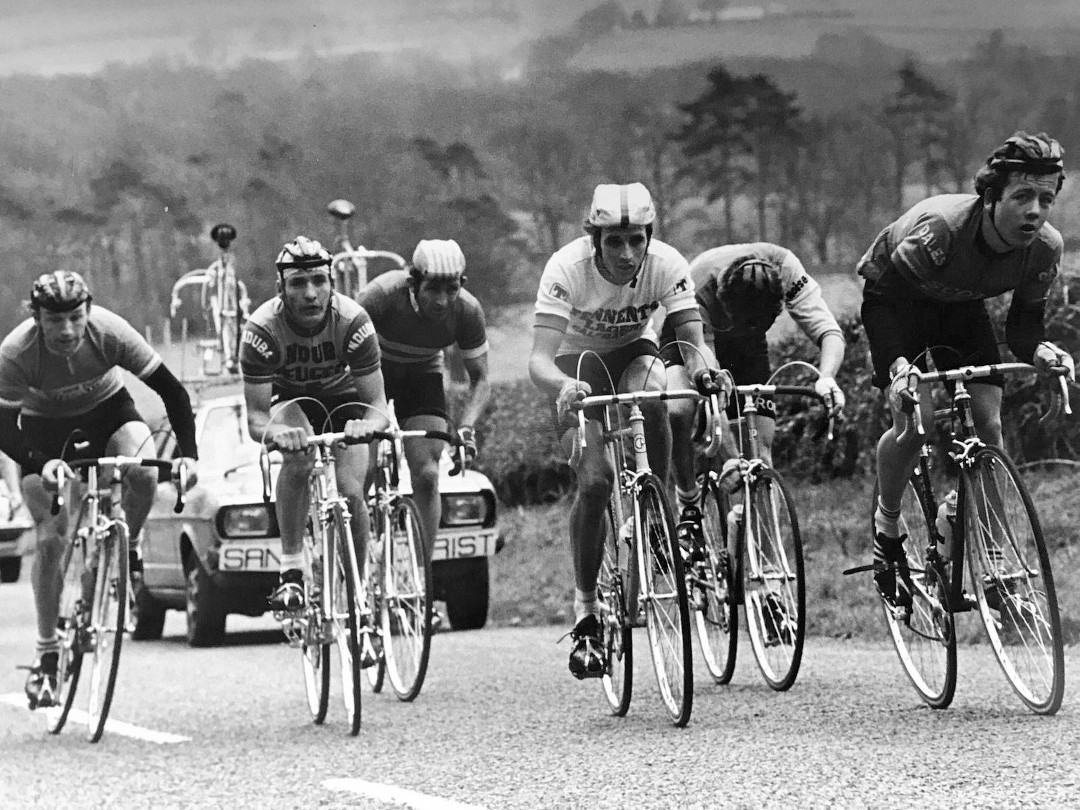
How did you get into cycling, Graeme?
“I got my first road bike as a hand me down from an older cousin when I was about eleven or twelve years-old.
“I used to go everywhere on my bike, usually flat out.
“One day when I was about 15 years-old I saw a training ride go past and realised there must be a cycle racing club in Edinburgh.
“I asked around the local bike shops and found out that Dunedin Cycling Club met at Meadowbank Velodrome on a Friday Evening.
“I went along one evening late 1972 and met Angus Fraser and Ray Harris who looked after the youngsters in the club and I joined up.
“It was after the end of the 1972 racing season so my first official bike race was the Velo Sportiv Christmas 10 mile TT at Wallyford, I recorded a time of 28:00.”
You were a Dunedin man but then went to the Roiseal CRT, why?
“My mentor and coach at Dunedin was Angus Fraser.
“He helped me and looked after me throughout my cycling career.
“He had a vision to take riders who were interested in travelling further to compete in the top races around the UK as well as local races in Scotland.
“Unfortunately there weren’t enough of us in the Dunedin to justify that, so he formed the Roiseal CRT in 1976 and I was in the original setup.
“The team’s ambition was to be more like a cycle racing team rather than a cycling club.
“I think he was ahead of his time.
“He invested a huge amount of his time and money for the only reward of seeing us do well in the races.”
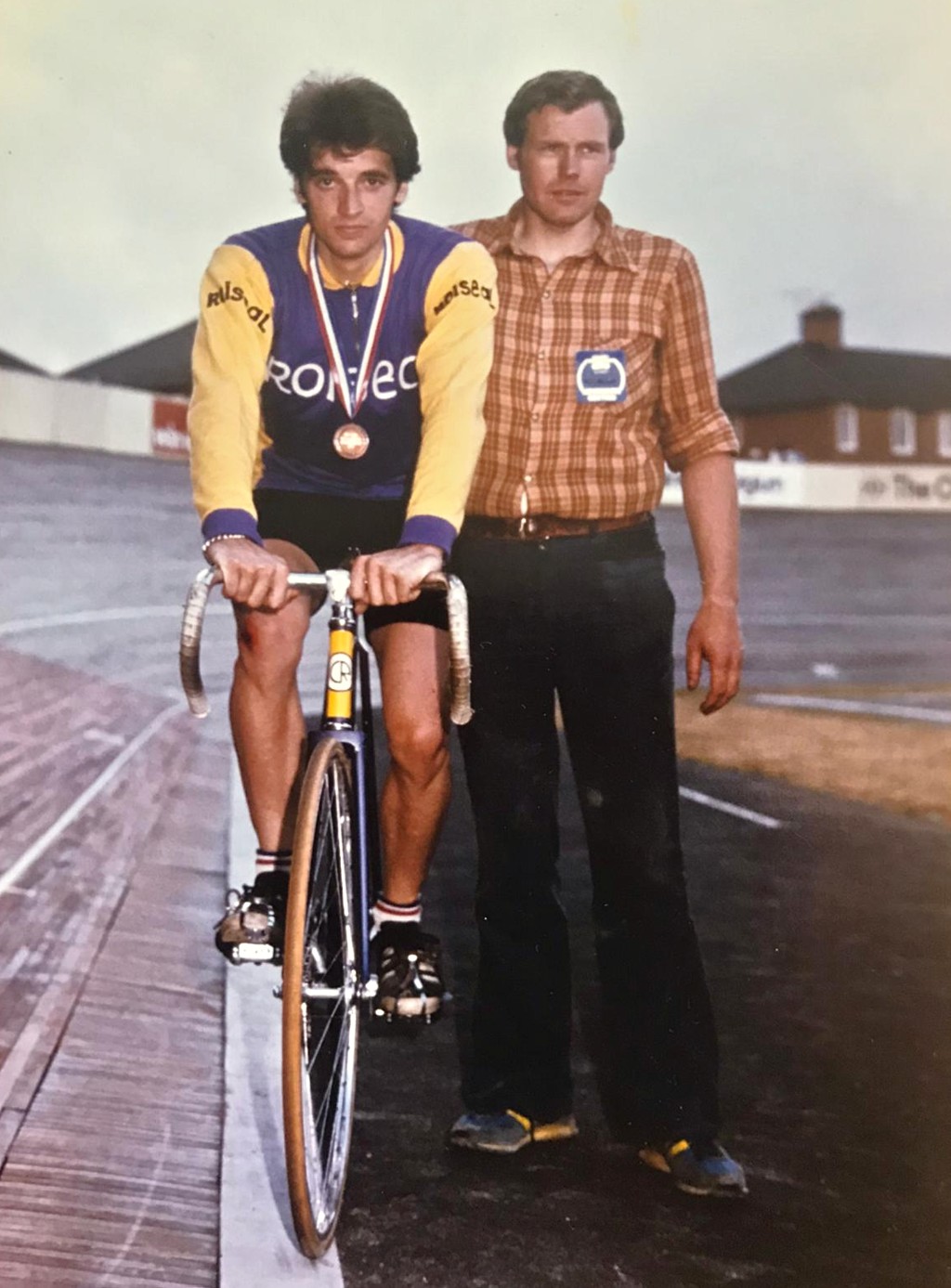
What are your abiding memories of the Roiseal?
“We had great fun, we had a great bunch of riders all quite talented and very committed.
“We enjoyed our training rides, we enjoyed our racing all over the UK, and we had lots of fun and laughs.
“It was a great time in my cycling career.”
You won the Sam Robinson in ’76 – a big result for a young guy from ‘the east’ [of Scotland, ed.]?
“Yes 1976 was the first year with Roiseal CRT and my second year as a senior rider.
“My performances stepped up a level that year, no doubt helped by the gruelling winter training rides.
“The Sam Robinson in 76 was my first big win in Scotland.
“I loved stage racing and rode seven stage races in ’76 including the Scottish Milk Race where I finished a respectable 25th, and the gruelling Tour of Slovakia, where I got a hammering.
“I was too young in ’76 for that kind of event, especially as I had a full time job and had to get time off work to go.
“It was a real eye opener.
“Fortunately I rode the Tour of Slovakia again in 1979 after I had been a full time rider for three years and although it was still a gruelling event I was much more involved with the racing and even managed a seventh place in a stage.”
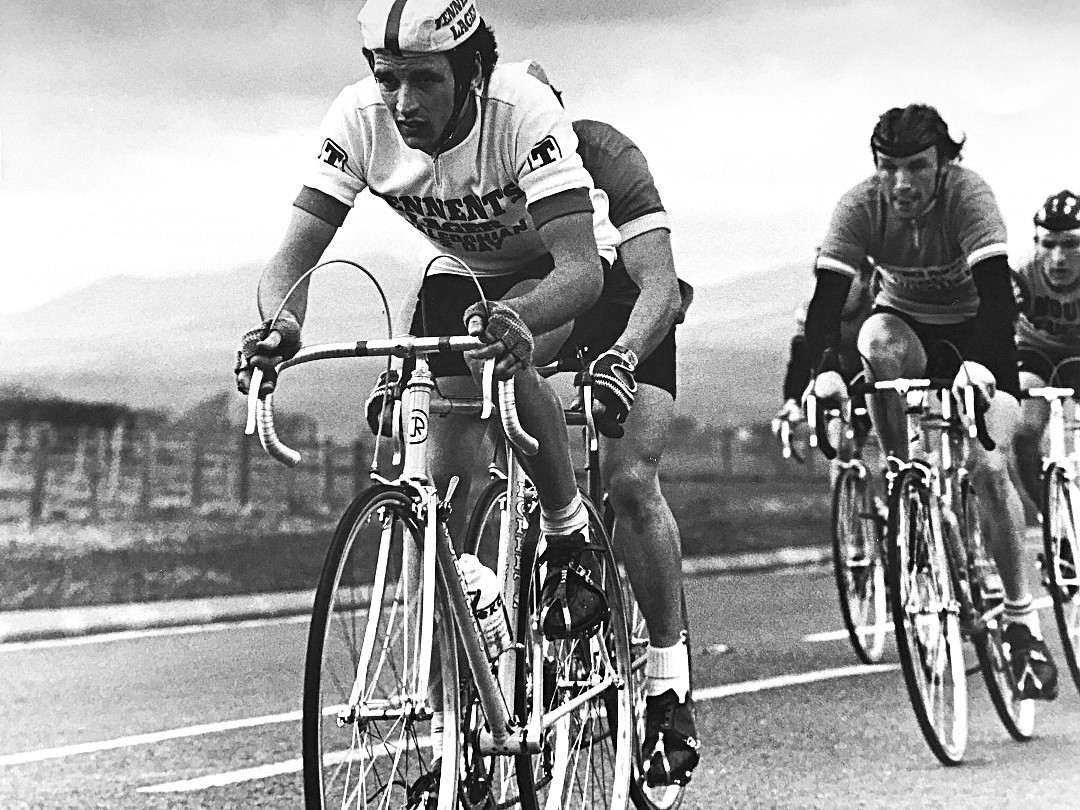
The Girvan stage in ’79 was a biggie, and you won the Musselburgh Three day that year too.
“After such a good year in 1976 with 12 wins, I wanted to get to the next level where I was competitive in international stage races, so in 1977 I went to France to race full time.
“I was therefore absent from most of the racing scene in Scotland/UK for ’77, ’78 and some of ’79.
“Season 1979 turned out to be my best year ever.
“Before going to France I had a second place in an international one day race in Mallorca, I won the last stage of the Girvan Three Day.
“I won the ‘Queen’ Stage Three of the Sealink International in Ireland (I was later relegated to last in the bunch for allegedly taking pace from the TV camera vehicle, which just didn’t happen!).
“I won Stage Two of the Musselburgh Two Day and took the overall win.
“I also won the Tour of the Kingdom before heading off to France for a shortened season over there.
“I returned from France in June to ride the Tour of Britain Milk Race where I underperformed due to illness (gastroenteritis), but managed to finish, winning the combativity points classification.
“Due to return to France after the Tour of Britain, I decided to return home to Edinburgh to recover from my gastroenteritis – I had lost over half a stone in weight during the T of B. I entered a few races in Scotland and before long I was back at my best, albeit slightly leaner than I used to be, but I was flying.
“As part of the Scottish team, I rode the five day Tour of Bohemia with the Scottish team in July, and when I came back from that I had a really good winning streak including the Inverness-Elgin and the Crieff GP.
“In August I returned to the Tour of Slovakia and this time I felt competitive in the race, and really enjoyed it, even though it was probably the toughest race I had ever ridden.
“I think I had 16 wins in 1979, it was my best year.”
Did you experience much of that East/West divide thing back then?
“There was always a healthy competitive spirit between the East/West but I rode with many of the West riders in the Scottish team in the major stage races and we all got on very well.
“They were all good friends, but when it came to Scottish races it was very competitive.
“I never felt there was an issue.”
Meadowbank Track League, I remember you ruling the roost there.
“Yes I dominated the Meadowbank track league for quite a few years.
“I think some of the other riders were glad to see the back of me when I went to France in 1977.
“I can’t remember how many time I won the league, probably three times.
“I loved track racing but I never considered myself a track rider, I always considered it as speed training for my road racing.”
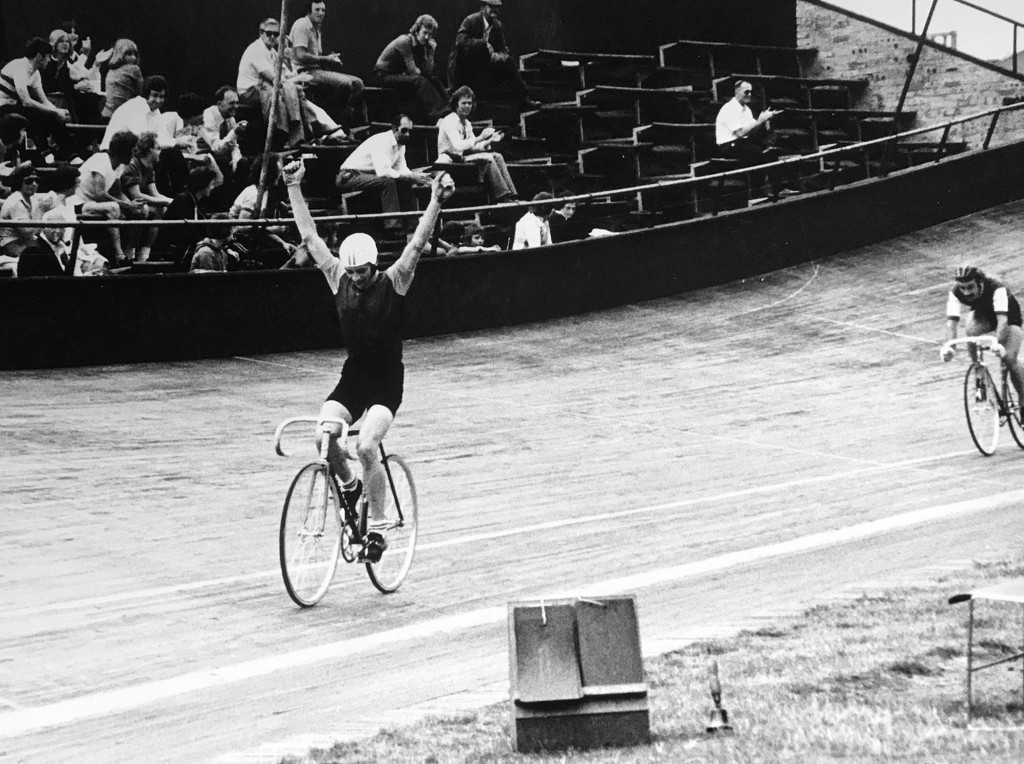
Third in the BCF 20K Champs in ’79 was a big result, very few Scots won British medals back then…
“I always preferred the scratch racing on the track and came back from the British Track Championships in 1979 with a bronze medal.
“To be honest I was gutted at the time as I felt I should have won.
“I had to go very early for the sprint, just because of the way the riders were winding it up for the sprint, but I had to go or I was going to be boxed in.
“Anyway, two riders just scraped by me in the last 20 metres.
“That’s bike racing!
“I think I was the first Scottish rider for nine years to come back from the National Track Championships with a medal.”
You rode for Scotland in Bohemia, Slovakia and the Sealink – have I missed anything?
“Major stage races I rode for Scotland were the Scottish Milk Race (1976), Tour of Slovakia (1976, 1979), Sealink International (1979, 1980), Tour of Britain Milk Race (1979), Tour of Bohemia (1979) and the Elswick Falcon London-Glasgow 4-day pro-am (1980).
“The London-Glasgow was probably the first pro-am stage race in the UK.
“I finished seventh equal in the GC and was second equal amateur rider so it was a good event for me.
“The best thing was riding in the same stage race as my boyhood hero Barry Hoban!”
What was the Scotland team organisation like?
“It was very basic back then.
“You were loaned a Scottish jersey for the race and that was about it.
“The best thing about the Scottish team races were you always had a mechanic to clean your bike every evening, and if you were lucky George Bryce was the physio.
“He was an excellent masseur after a long hard day in the saddle.”
What were your best results on the international stage?
“I think my stage win in the ‘Queen stage’ of the 1979 Sealink International in the Wicklow Mountains outside Dublin would have to be up there.
“It was a shame I was robbed of the win by some very dubious commissaire decisions – it still make me very angry when I think about it.
“Although I was relegated to last place in the bunch, I still consider it as one of my best rides.
“Just to rub salt in the wound I’ve still got a DVD recording of the race including the alleged incident as it was shown on BBC Grandstand a few weeks later.”
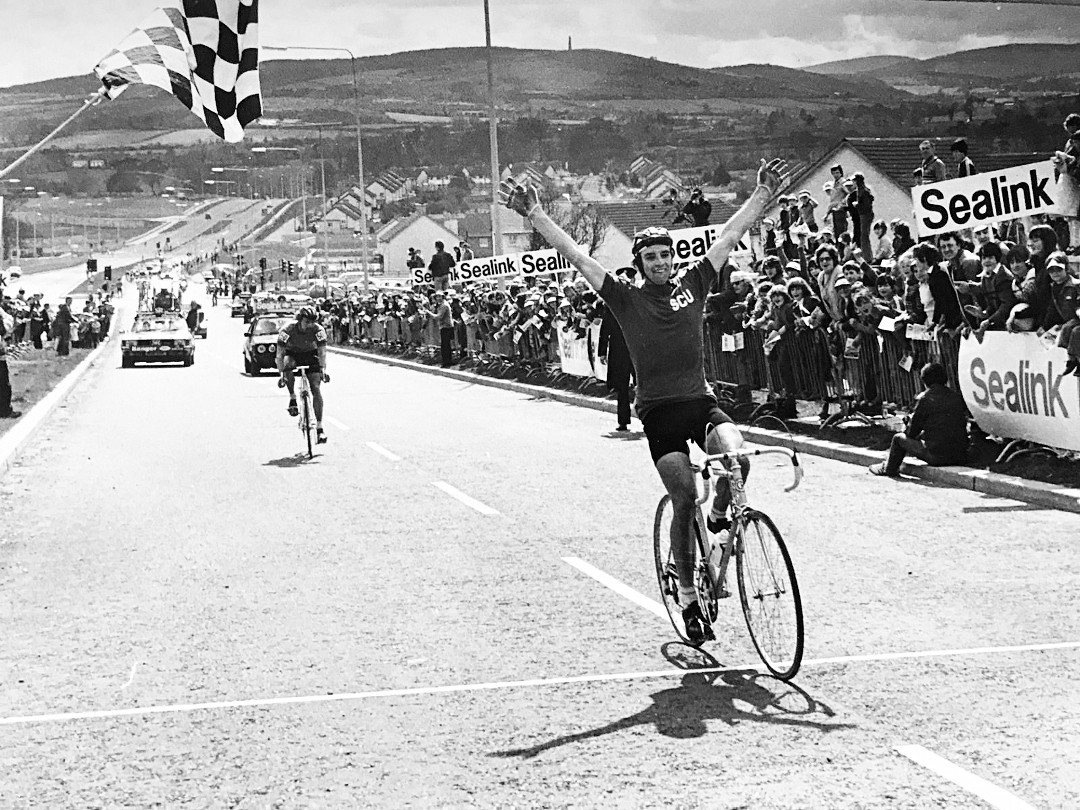
You went to France – which club and how was it organised?
“I went to France in 1977 to become a full time rider with club team La Pédale Madeleinoise in Lille, Northern France.
“It was quite a basic set-up, not too distinct from the Roiseal team. The main difference was the club team had sponsorship; from ‘Meo’ coffee” and ‘Gitane’ bikes… we got all our kit, track-suits etc. supplied, and were awarded bonus payments depending on results.
“To preserve our ‘amateur’ status the bonuses and prizes were distributed at the end of the racing season, so you had to rely mainly on primes from the criteriums to pay the bills.
“It was hand to mouth living and quite a nomadic life.
“The big thing I missed was the stage racing.
“In my first year in France we rode the Tour of the Ardennes which was a really nice race and I finished around 20th overall.
“But other than that it was just the odd two or three day event.
“Although I enjoyed criteriums I eventually got sick of riding three or four of them every week all season long.
“I missed the big stage races.”
What was the set up like in France and what sort of results did you get?
“I had a few wins in France, and lots of top ten finishes.
“It was difficult to win in France as the French riders were very determined not to allow a British rider win their races, even to the point I could sometimes see my own team mates help chase me down if I was up the road in a break.
“That was just how it was in France!”
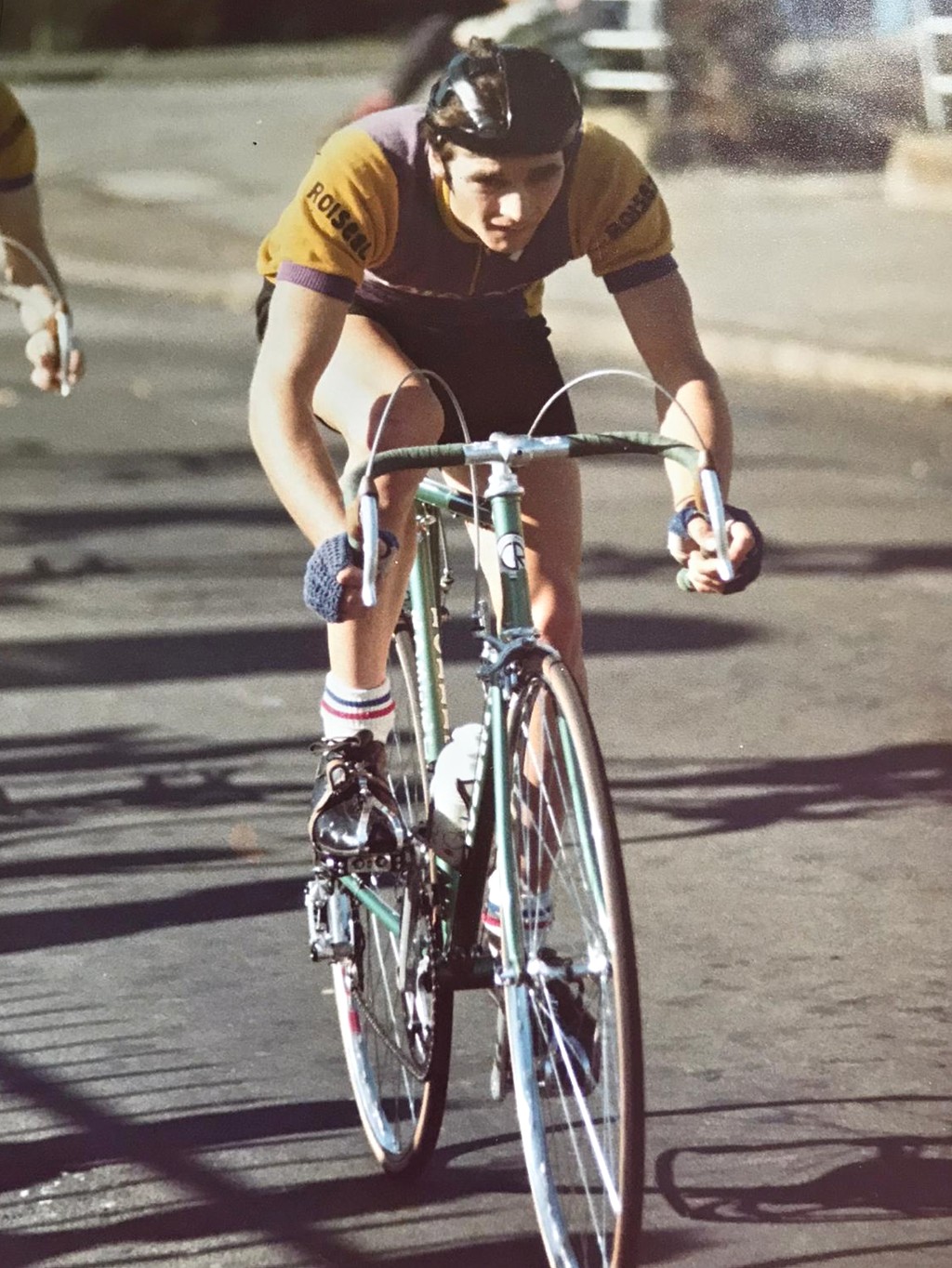
What did you do after France?
“After I came back from France in 1979 for the Tour of Britain, I went home to Edinburgh to recover from my stomach bug, and was planning to return to France later to finish off the season.
“I got selected for the Tour of Bohemia in July, and then the Tour of Slovakia in the August, and realised how much I missed the big stage races.
“I never went back to France.”
When did you quit and what has life held for you since?
“I raced full time until midway through the 1980 season, but I had to decide if I could make a decent living out of bike racing, or get ‘a proper job’ again.
“I had given up my career in Electronic Engineering to go to France in 1977, and it was a career that was fast changing back then, so I couldn’t drop out of it for too long if I wanted to get back into it.
“I therefore returned to my electronic engineering job in 1980 and continued to race at a lower level till the end of 1982.
“I found it quite difficult to go from being a full-time cyclist to being part time, training in the evenings again, it was a difficult transition to make.
“I have no regrets though, I had almost 10 years of very committed racing and enjoyed my time in the peloton.
“After my racing finished I focussed on another of my life ambitions for a year or so, and got my private pilot’s licence in 1985, and I’m still flying today.
“I got married to Maureen in 1981 and we have two lovely daughters who are both talented sportswomen.
“Vicki my eldest daughter was a talented swimmer, she was in the Scottish national squad before a serious shoulder injury forced her to retire early from the sport.
“Sarah my youngest Daughter now lives in Perth, Western Australia, is turning into a talented triathlete.
“She is ranked in the top three for her age-group in Western Australia.
“She boasts that she has a better bike than me now (probably true) and also claims she will drop me on our bike rides (probably also true).
“I also have two grandchildren now (two years old and six months old) which is really nice.
“I will probably retire in the next couple of years and the retirement plan is to get out on my bike more, get more flying done, and spend more time with family and grandchildren, including spending a lot more time in Perth, Western Australia.
“I should be there now for a two week holiday but Covid-19 has put a stop to that.
“Since 1990 we have lived in the Cotswold Hills near Cheltenham.”
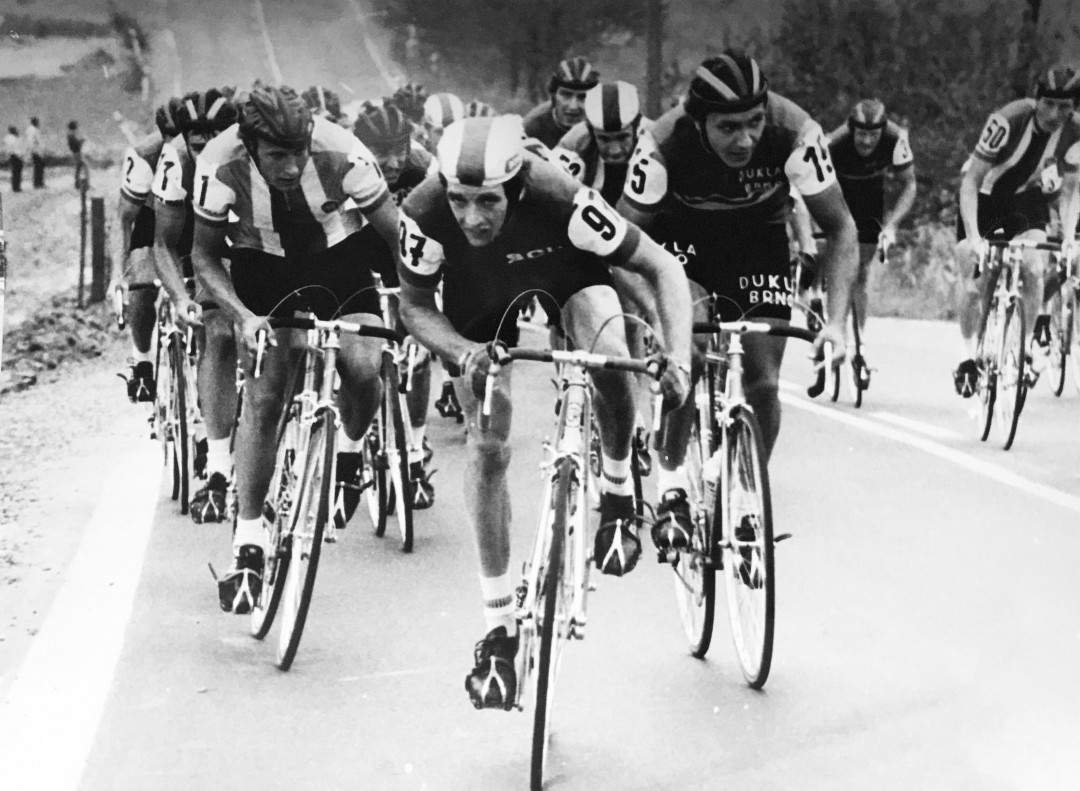
Which result in your career are you most proud of?
“That’s a tricky question.
“The Sealink International stage win, Musselburgh Two Day win, British championship medal, second equal amateur in the London-Glasgow four day pro-am.
“They are all up there.”
And if you had your time over?
“I don’t think I would change anything!”
With thanks to Graeme for his time with this interview.



